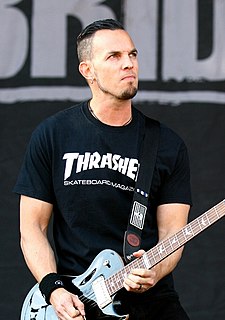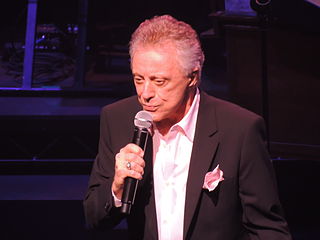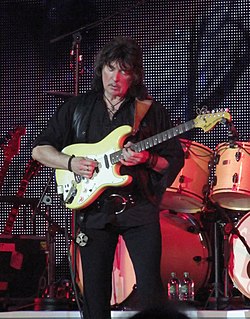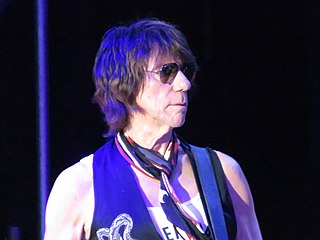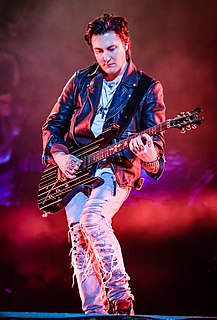A Quote by John Petrucci
Your solos should be as interesting as any other part of the song.
Related Quotes
I don't really break into too many solos. But I've never been a super-big solo guy anyway. I like to make the main melody guitar lines of the songs as cool and interesting as possible without just strumming chords. I like to have chords intertwined with riffs here and there, but I'll do the riffs and the solos where the bottom will drop out. Basically, I do everything for the song, I don't do it for the solo glory. Kids aren't really into that anymore for some reason.
I'm very interested in the distance and the space between those two poles: very concrete, song-based stuff on the one hand and very improvisational, abstract stuff on the other. I don't see any reason music should exclude one or the other, and I think the pairing of them together makes for very interesting music in a lot of ways.
Listening to as many guitar solos as possible is the best method for someone in the early stages. But saxophone solos can be helpful. They're interesting because they are all single notes, and therefore can be repeated on the guitar. If you can copy a sax solo you're playing very well, because the average saxophonist can play much better than the average guitarist.
The interesting thing about a song like 'Bulletproof Heart' - it was [originally] called 'Trans Am' - the interesting thing about the amalgamation of that song was that the song also lived within us, like we all got to live with the song and it was around for about a year before we recorded it again, so the song got to really transform, which you don't really get to do.

